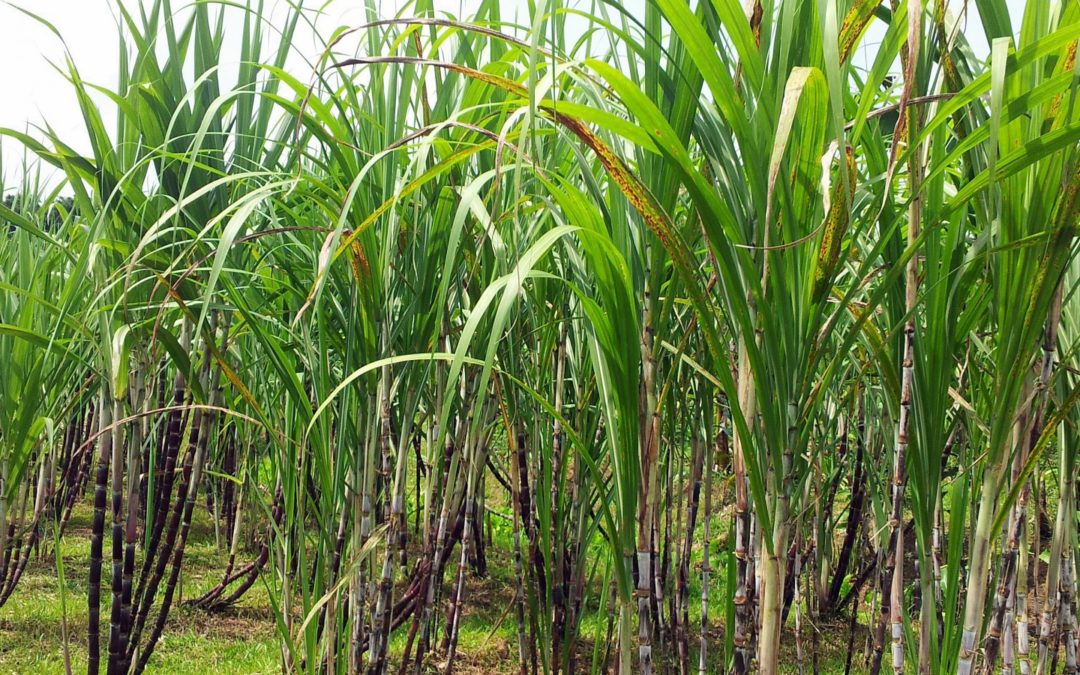From Field to Table: The Journey of Sugar and Cane
From Field to Table: The Journey of Sugar and Cane
Blog Article
Why Cane Sugar Handling Chemicals Are Important for Modern Sugar Refining
The duty of cane sugar processing chemicals in modern sugar refining can not be overemphasized, as they are important to enhancing both the effectiveness of removal and the general high quality of the final item. Representatives such as phosphoric acid and certain flocculants are utilized to get rid of contaminations, resulting in sugar that not just satisfies consumer expectations but also sticks to industry standards.
Role of Handling Chemicals
The efficacy of walking stick sugar handling hinges significantly on the strategic application of handling chemicals. These chemicals play a pivotal duty in improving the effectiveness and quality of sugar removal and refining. From the initial stages of juice removal to the final purification actions, processing chemicals help with numerous critical operations.
In the removal phase, chemicals such as phosphoric acid and calcium hydroxide are utilized to optimize the information procedure, assisting to get rid of impurities and suspended solids from the walking cane juice. This not just boosts the return but additionally makes sure the clearness of the final item. In addition, representatives like flocculants aid in the fast settling of impurities, consequently simplifying the overall process.
As the handling breakthroughs, chemicals are utilized in decolorization and condensation phases. Turned on carbon and ion exchange resins offer to eliminate shade and smell, making sure that the polished sugar satisfies consumer high quality standards. Ultimately, the function of handling chemicals extends beyond operational performance; they dramatically influence the sensory attributes of the last item, adding to market competition. Therefore, the thorough choice and application of these chemicals are important for attaining ideal end results in walking stick sugar processing.
Secret Sorts Of Chemicals
Walking stick sugar processing relies on a selection of essential chemicals that help with each stage of manufacturing. These chemicals play essential roles in clearing up, bleaching, and detoxifying the sugar extracted from walking cane.
One main classification of chemicals includes flocculants, such as polyacrylamide, which help in the information process by advertising the aggregation and settling of contaminations. Furthermore, calcium hydroxide is commonly employed to reduce the effects of level of acidity and aid in the elimination of non-sugar components.
Bleaching representatives, such as triggered carbon and sulfur dioxide, are used to decolorize the syrup, leading to a more clear final item. These chemicals help remove color compounds that might impact the sugar's look and marketability.
Furthermore, phosphoric acid works as a pH regulator throughout the processing phases, making sure optimal conditions for the chemical tasks associated with sugar extraction and filtration.
Other essential agents include edta (ethylenediaminetetraacetic acid), which chelates metal ions that might catalyze undesirable responses, and sodium hydroxide, which assists in pH control throughout the refining procedure. Jointly, these chemicals boost effectiveness and ensure a high-quality walking cane sugar product.
Advantages for Sugar Quality
Frequently overlooked, making use of details handling chemicals considerably boosts the general high quality of walking cane sugar. These chemicals play a critical duty in refining processes, guaranteeing that the end product meets rigid sector standards for pureness and taste.

Additionally, refining chemicals help in attaining a regular granulation and appearance, which are critical for customer approval. By controlling the formation process, these chemicals guarantee that the sugar crystals form uniformly, resulting in a more enticing product that liquifies well in numerous applications.
Furthermore, using these chemicals can improve the life span of walking cane sugar by decreasing dampness absorption and microbial development. Generally, the critical application of processing chemicals is important for supplying high-quality walking cane sugar that fulfills customer assumptions and sector needs.
Environmental Effect Factors To Consider

Additionally, the energy-intensive nature of sugar refining, intensified by chemical use, usually causes increased carbon emissions. This contributes to climate modification and increases worries pertaining to the sustainability of existing refining practices. Additionally, the sourcing of these chemicals may include techniques that intimidate biodiversity, such as go to the website monoculture farming, which click this lowers the resilience of farming ecosystems.

To mitigate these influences, sugar refiners are significantly discovering lasting choices and embracing finest methods that minimize chemical use. Applying extensive environmental management systems can aid make sure that the refining process aligns with ecological requirements and promotes biodiversity. Eventually, a balanced approach that prioritizes both sugar quality and ecological stewardship is crucial for the long-lasting practicality of the sugar industry.
Future Fads in Refining
As the sugar market grapples with the environmental difficulties connected with traditional refining approaches, innovative strategies are emerging to boost both effectiveness and sustainability. One significant pattern is the adoption of eco-friendly chemistry concepts, which prioritize the usage of non-toxic, eco-friendly processing chemicals. This change not only lessens environmental effect but likewise addresses customer demand for cleaner manufacturing approaches.
One more encouraging development is the execution of advanced filtering modern technologies, such as membrane splitting up and adsorption procedures. These techniques enhance the quality and quality of the sugar while minimizing the quantity of wastewater generated throughout refining. In addition, the integration of digital modern technologies, consisting of IoT and AI, is transforming functional performance our website by enabling real-time monitoring and predictive upkeep, hence minimizing resource waste.
Additionally, making use of by-products from sugar refining, such as bagasse and molasses, is acquiring grip. These products can be exchanged biofuels or value-added products, contributing to a circular economic situation within the sector. Jointly, these trends signal a shift towards even more lasting practices that not only improve functional efficiency yet likewise straighten with worldwide sustainability goals, making certain the future practicality of sugar refining.
Final Thought
Walking stick sugar handling chemicals are crucial in modern sugar refining, considerably improving the effectiveness and high quality of sugar extraction. The tactical use these chemicals not only improves the purity and taste of the last item yet likewise makes sure constant condensation and texture. As the industry increasingly prioritizes sustainability, the adoption of environmentally-friendly processing representatives is most likely to shape future trends in refining, ultimately bring about greater top quality products and extended life span for consumers.

Inevitably, a balanced technique that focuses on both sugar quality and environmental stewardship is necessary for the lasting practicality of the sugar market.
Walking cane sugar handling chemicals are essential in contemporary sugar refining, substantially boosting the efficiency and quality of sugar extraction.
Report this page